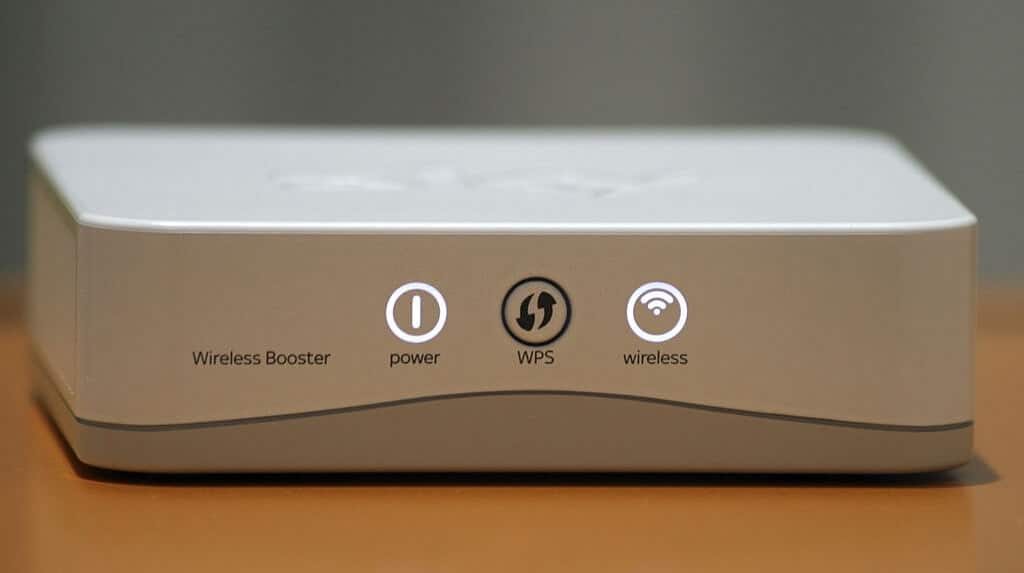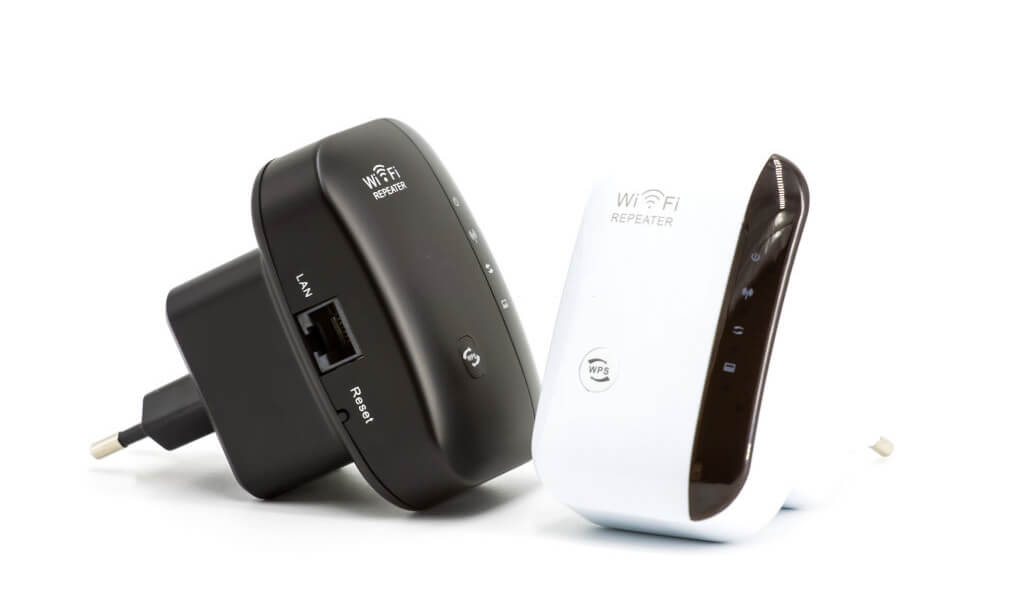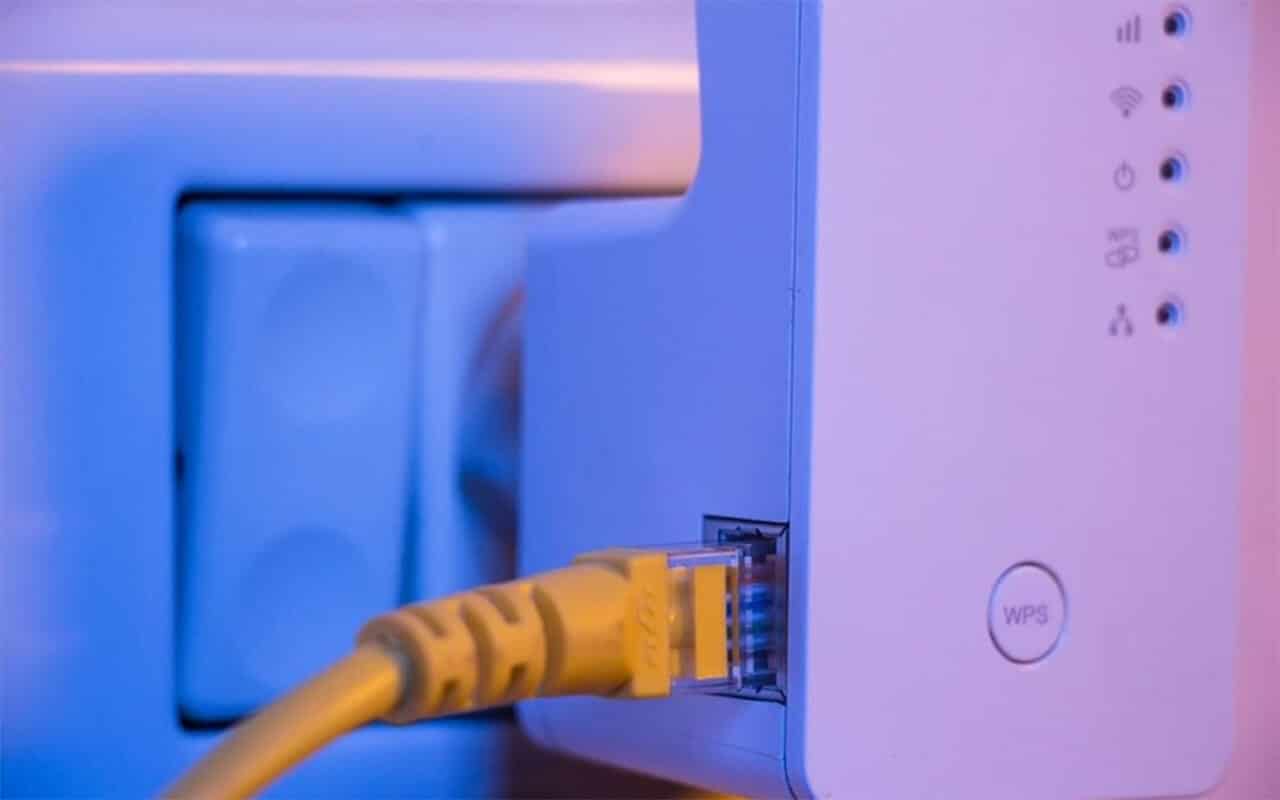There is no doubt that having a wireless router in your home or office gives you the flexibility to connect a number of devices to the Internet from different locations. Since I converted from an Ethernet cable system that involved a lot of cables everywhere to a WiFi router solution, I have never looked back.
But the problem with WiFi routers is that you can suffer from low signal strength, which will definitely impact your ability to connect to the Internet and the speed of your connection. If you have a computer located far away from the wireless router, or in a place where there are many obstacles in the way of the signal, you can have problems.
Fortunately, there are devices available to help you to overcome these issues in the form of WiFi boosters, WiFi repeaters and WiFi extenders. But which ones should you use? I consider myself to be pretty computer savvy, but when I was first looking for the right answer to my low WiFi signal problems, I must admit I was a bit confused.
So, as usual, I went on a mission to find out everything that I could about these devices and how they could help me. In this article, you will find everything you need to know about WiFi boosters, repeaters and extenders.
What are WiFi Boosters and how do they work?

You have likely heard of a WiFi booster before. They are pretty standard and a lot of people use them to solve their wireless signal problems. So what does a WiFi booster do? Well, you need to plug it into your wireless router and then it will amplify the WiFi that your router produces.
In most home and office setups where there is a wireless router, a broadband modem connects to the router and then through the use of antenna, the router sends out the wireless signal to different areas of the building. When you connect a WiFi booster to your router, you are effectively adding a stronger antenna to it giving the initial signal a significant boost.
A WiFi booster is a good solution if your wireless router is in a reasonably central location. This is because it will boost the WiFi signal and all of the devices in range will benefit from this. A good example of this is an open plan office with a wireless router located in the middle. In this scenario, everyone gets the benefit of the boosted wireless signal.
Using a WiFi booster may not provide the best results in a home. This is because it is usually difficult to truly centrally locate a wireless router in a residential dwelling. The result of this is that some users will always get a stronger wireless signal than others, depending on where they are in the property.
A WiFi booster is not going to improve the signal much for those located the furthest away from the router. The signal is already very weak in these areas and it will just boost it a little. The user may not even notice this slight signal boost. In this scenario, you need to consider a WiFi repeater or WiFi extender.
What is a WiFi Repeater and how does it work?

If you want to use a WiFi repeater to provide an answer to your low wireless signal problems, then you will need two wireless routers to make this work. You will have your initial wireless router that has a connection to the Internet and your broadband modem. It will also send a wireless signal to the second router that you need to acquire separately.
When you have two wireless routers, you can locate one of them to serve the problem areas for signal strength in your home or office. So, for example, if you have a home office in a location that is far away from your current wireless router, you can place a WiFi repeater in an area near to your office to provide signal amplification.
In some situations, you may need a good WiFi signal reception outdoors. Maybe it is a beautiful summer day and you want to work outside in your backyard. Using a WiFi repeater here is a good solution. You can use an outdoor panel antenna that will boost your WiFi signal to all areas more efficiently.
There are other places where you can use a WiFi repeater for better signal strength as well. If you have a boat or an RV, then they will work well for these. In fact, anywhere that you need to give your WiFi signal, a boost is a job for a WiFi repeater.
To get the best results from a WiFi repeater, you need to locate it in the best place. Once you have set the repeater up, you will need to access it with your computer or mobile device and then enter the name of your main WiFi network and the associated password.
When you use a WiFi repeater, you will create a second network. If you are out of range of the main wireless network, then you can connect your device to the secondary network to obtain Internet access.
A WiFi repeater provides the same levels of security that your existing wireless router will. This includes WiFi protected access (WPA) as well as wired equivalent privacy (WEP), so there is no need for you to have any security concerns.
What is a WiFi Extender and how does it work?

A WiFi extender is different in that you would use it to connect with an existing Ethernet wired network. They connect to the network using either a coaxial cable or an Ethernet cable. You can purchase some WiFi extenders that can utilize the mains electrical wiring network that exists in your home or office. Often you will see these called “powerline” extenders.
When you use WiFi extenders, the technology enables you to extend your current high-speed network to other areas of your home or office. You can do this without having to worry about any interference between the routers.
The best way to think about this is to imagine a room having a new wireless router installed in it. This router connects directly to the Internet via your existing wired network. So if you have a basement area, for example, where you will require Internet access, then a WiFi extender can be a perfect solution.
The Differences between a WiFi Booster, WiFi Repeater and WiFi Extender
A WiFi booster is significantly different from a repeater and an extender. You are not installing a second device here – you are just boosting the signal of your existing wireless router so that devices in range of it will enjoy a stronger signal and better Internet connectivity and performance.
You can get good results from a WiFi booster if all of the devices that connect to the existing wireless router are all in a reasonable range and there is not much “line of sight” obstruction. In other situations, you will need to use either a WiFi repeater or WiFi extender.
The most confusion comes from the difference between a WiFi repeater and a WiFi extender. On paper, they appear to do the same thing, but they do have different designs. A WiFi repeater utilizes the same technology for wireless connections that a WiFi-enabled laptop or mobile device does.
This means that a WiFi repeater can detect and connect to any wireless networks in the surrounding area. A WiFi repeater usually has a strong antenna (or several antennas) that will pick up the existing wireless signal and rebroadcast this signal (or repeat it) to the area where you need it.
While you will get a stronger signal around the repeater, you will lose up to half of the available bandwidth. One of the other disadvantages of WiFi repeaters is that they are prone to interference from other devices such as wireless stereos and microwave ovens.
If you are looking for a more stable wireless signal boosting solution, then a WiFi extender is usually a better solution over a WiFi repeater. In essence, a WiFi extender will replicate the existing network without the need to create another network. This means that there is no reduction in bandwidth.
The fact that you can use an existing mains electricity wiring network is a major plus when using WiFi extenders. If it is really difficult to get a signal in a remote room or other location, as long as the mains power is connected to the same wiring network, you can get good results with an extender.
So to summarize – a WiFi booster will boost the original wireless signal from your router, but it will not help with really remote locations etc. A WiFi repeater is very simple to install, but you will lose some of the bandwidth that your existing network provides. The reason for this is because a WiFi repeater has to use its WiFi band to transmit signals to and from the existing wireless router.
It is very important where you locate a WiFi repeater, as this can significantly affect the strength of the signal. They are not very useful when you have thick walls involved, for example.
And finally, a WiFi extender can connect to an existing wired network. There is no reduction in bandwidth at all. It is a very efficient way to extend your current network to a different location, and you do not need to create a separate network to do this.
Conclusion
I have done my best to make a fairly complex issue as simple to understand as possible. If you still have doubts about the kind of boosting device that you need, then ask yourself these questions:
Is there likely to be a lot of interference in the area that I want Internet access?
Does it really matter if the bandwidth of the existing network is reduced by as much as 50%?
If you can answer “no” to both of these questions, then a WiFi repeater is likely to provide you with what you want because it is very easy to setup. If your answer to either question (or both) was “yes,” then you need to look at using a WiFi extender.

My laptop is about 8 feet from my desktop and router. My laptop signal is about 33% slower than my desktop. I have ordered the wifi repeater or booster in the photo above this ad hoping it will boost my signal. The more I read, the more confused I get. The modem and router are on top of the desk 8 feet from my laptop.
Hope you can let me know the correct solution.
Thanks
Hi John,
If you are using an old laptop, you may face a slow wifi connection. Hope these can help you:
1. stop background updates (windows and software updates)
2. reinstall or update your wifi driver
3. test speed using an ethernet connection
4. use an external wifi card
5. now test your internet speed from https://www.speedtest.net/